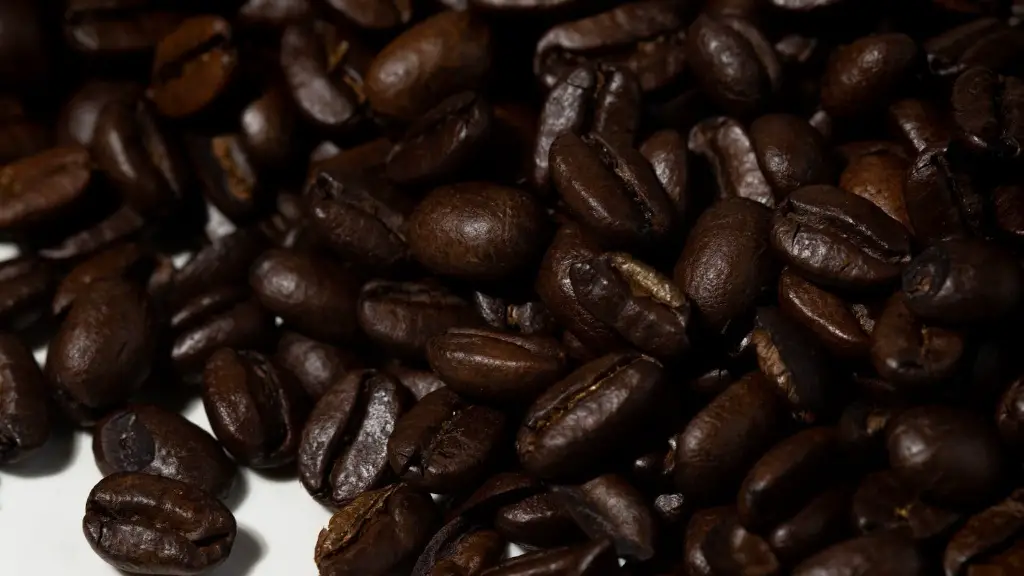Tooth extractions may be used for a variety of reasons, from overcrowding to impacted wisdom teeth, and this can leave the patient in a state of worry. One of the most common concerns is whether or not they can drink coffee after the procedure. There are a few different points of view on the matter, and it is important to consider the opinions of both dental professionals and other experts before making any decisions.
Coffee contains an acidity that can aggravate the area around a recently removed tooth, so it is important to drink with caution. It is recommended that patients wait at least a day after the extraction before drinking any coffee to allow the tissue to firm up and begin the healing process. Drinking coffee and other hot liquids too soon after a tooth extraction can limit the benefits of the procedure, leading to an increased risk of infection or other complications.
One of the greatest risks of drinking coffee after a tooth extraction is the potential for bacterial infection. However, even if the patient waits at least two days before having coffee, it is still possible for bacteria to enter the extraction site and cause an infection. This is because coffee, like any other food or drink, contains bacteria which can enter the area and cause infection. Therefore, it is important to take all necessary steps to ensure that the extraction site remains clean and free of bacteria.
The patient should also be mindful of the temperature of the coffee they consume. It is important that coffee is drunk at a temperature that is comfortable as hot liquids can aggravate the area around a recently removed tooth, making it more prone to infection and swelling. When it comes to drinking coffee after a tooth extraction, it is best to opt for cool or lukewarm coffee to avoid any harm to the extraction site.
It is also important to keep in mind that drinking coffee after a tooth extraction may affect the healing process. This is because coffee contains caffeine which can actually slow down the healing process, as it restricts the flow of blood to the area which can potentially delay the healing process. Therefore, it is important to keep caffeinated beverages to a minimum during the recovery period.
Finally, it is a good idea to keep up a healthy diet even after the tooth extraction. Foods that are rich in protein, calcium, and vitamins can help to speed up the healing process and keep the surgery site healthy. Eating nutritious meals can also help to boost the immune system, which can reduce the risk of infection and can enhance the healing process. Keeping up a healthy and balanced diet is essential, as it can help to reduce the risk of infection and speed up the healing process.
Caffeine Intake After Tooth Extraction
Experts caution patients to be mindful of their caffeine intake after a tooth extraction, regardless of the duration since the surgery. As with any medical procedure, the patient’s health should be of paramount importance and any activities or consuming habits that could potentially cause more harm than good should be avoided. As stated earlier, coffee contains an acidity that can aggravate the area around a recently removed tooth, and so it is important to drink with caution.
Coffee can also reduce the sensitivity of the area surrounding the extraction site, making it more prone to further damage. As such, it should be avoided as much as possible until the area is fully healed. Furthermore, drinking coffee too soon after a tooth extraction can lead to dry socket, a condition where exposed bone and nerves become painful and vulnerable, which can lead to infections or inflammation. Therefore, patients are advised to take extra care when it comes to caffeine intake after a tooth extraction.
Dental Care After Tooth Extraction
In order to ensure an optimal outcome after a tooth extraction, it is essential that patients adhere to the dental care guidelines provided by the dentist. This typically involves rinsing with warm salt water, taking pain-relievers to reduce discomfort, and using gauze to control bleeding if necessary. It is important to note that brushing and flossing near the extraction site should be avoided for the first week, as this can cause irritation and slow down the process of healing.
In addition, it is important to avoid activities which can cause strain on the extraction site. This means avoiding strenuous exercise, heavy lifting, and any activity which may increase the heart rate. Of course, patients should also avoid smoking, as this can hinder the process of healing and put the patient at an increased risk of infection. By following all of these guidelines, as well as avoiding caffeine intake, the patient can ensure a speedy recovery and reduce their risk of infection or inflammation at the extraction site.
Implications of Not Following Aftercare Guidelines
It is essential that patients adhere to the dental care guidelines provided by the dentist in the days following a tooth extraction. By following the advice of the dentist, the patient can ensure a speedy recovery and reduce their risk of infection or inflammation at the extraction site. Additionally, it is important to be aware that not following the aftercare instructions can have dire consequences.
For example, if the patient fails to rinse with warm salt water as recommended by the dentist, they may be putting themselves at an increased risk of infection. Furthermore, if the patient fails to take pain-relievers as recommended, they may be experiencing more discomfort than necessary. Finally, if the patient goes against the recommendation and smokes or drinks coffee, this can lead to further complications and delay the healing process.
Benefits of Following Aftercare Guidelines
By following the aftercare guidelines provided by the dentist, patients can ensure that their healing process is as efficient and comfortable as possible. This can also reduce their risk of infection, as adherence to the aftercare instructions can help to keep the extraction site clean and bacteria-free. Additionally, sticking to the advice of the dentist can help to reduce swelling and inflammation, and can prevent complications such as dry socket from occurring.
Patients should also be aware of the difficulties associated with tooth extractions. While the procedure is largely safe and effective, there is always a risk of infection or inflammation, as well as pain and discomfort. As such, it is important to take all necessary steps to ensure the safety and optimal outcome of the procedure. This includes being mindful of caffeine intake, as well as adhering to recommended dental care after the extraction.
Takeaways
All in all, it is important for patients to take the necessary steps to ensure a successful and safe outcome from a tooth extraction. This means avoiding coffee and other sources of caffeine, as well as adhering to the aftercare guidance of the dentist. This can help to keep the extraction site clean and bacteria-free, while also reducing the risk of infection or inflammation, and speeding up the healing process. Ultimately, following these tips can help to guarantee the best possible outcome after a tooth extraction.



